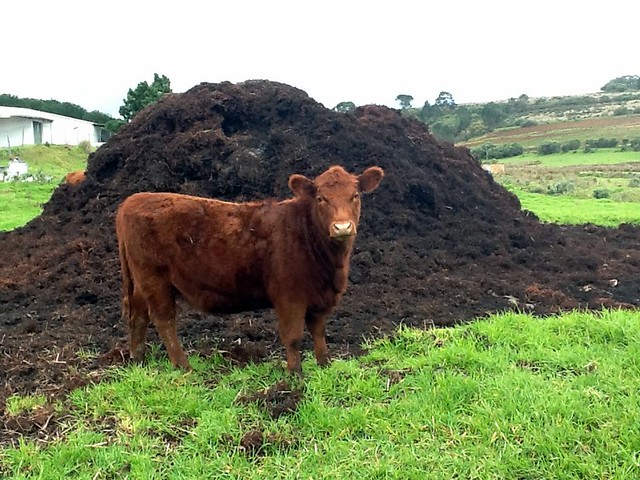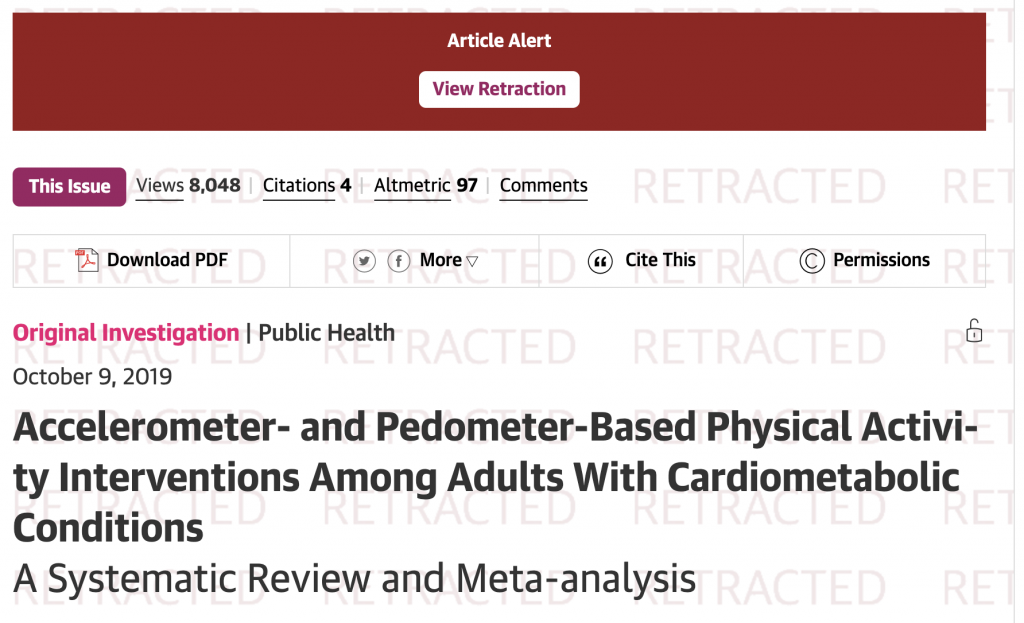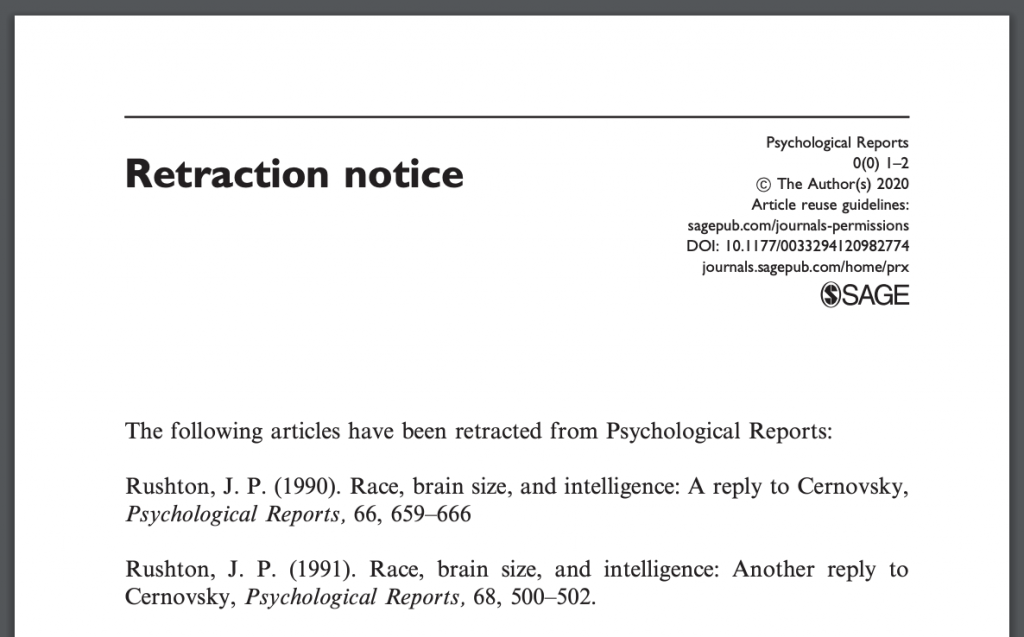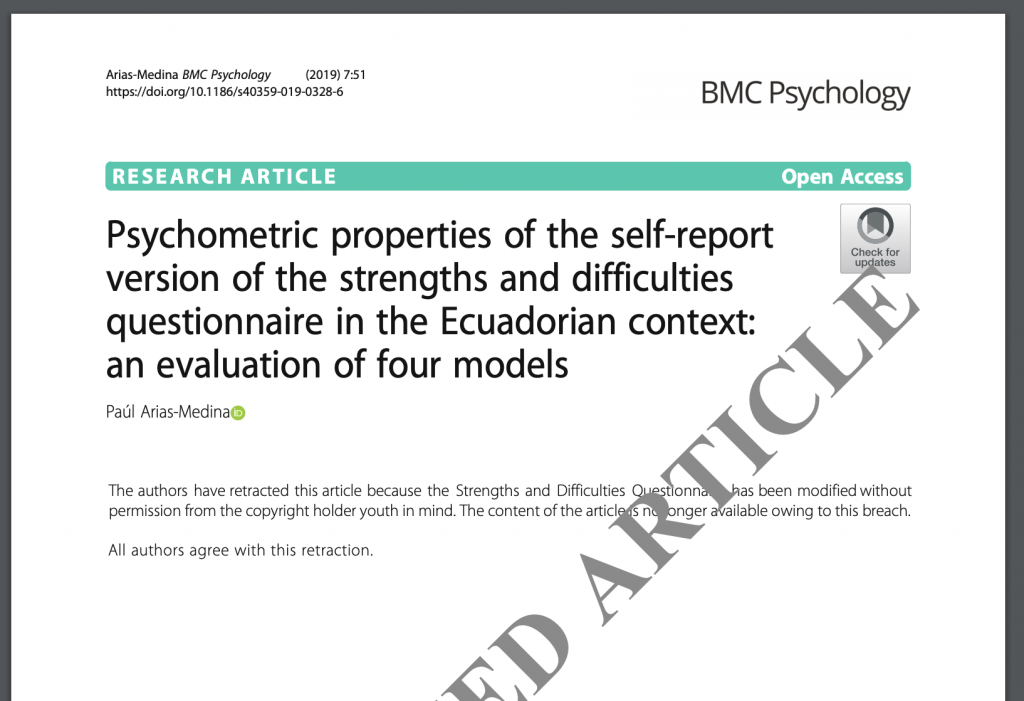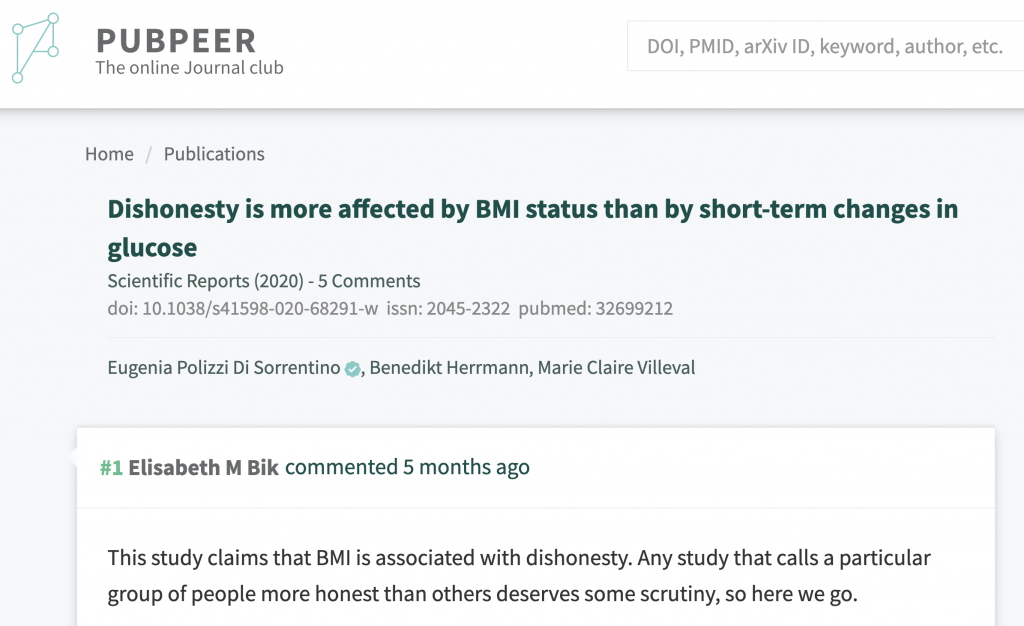
More than five months after outraged readers demanded that a Springer Nature journal retract a paper linking body mass index to honesty, the publication has been pulled.
The journal now says that a post-publication review of the article found that the data don’t support the authors’ conclusions — which is another way of saying that the pre-publication peer review missed that fact.
Publication by Scientific Reports of the article, “Dishonesty is more affected by BMI status than by short-term changes in glucose,” last July caused consternation on social media, as readers wondered what they were reading and why the journal had agreed to publish the study, as well as on the journal’s website.
Continue reading Springer Nature journal retracts BMI, honesty paper
